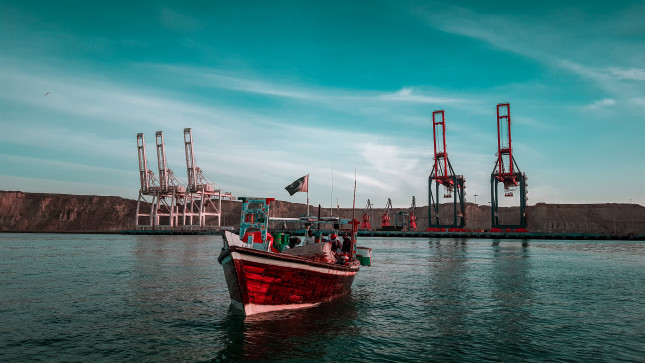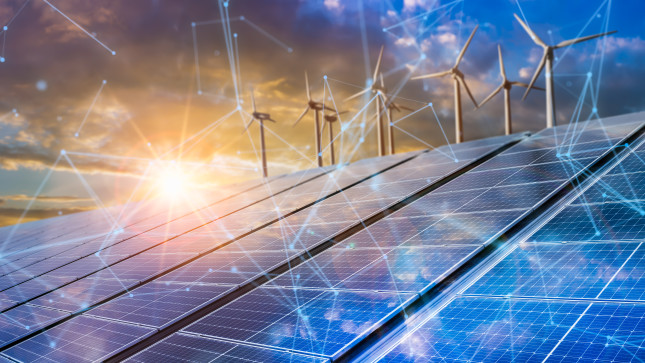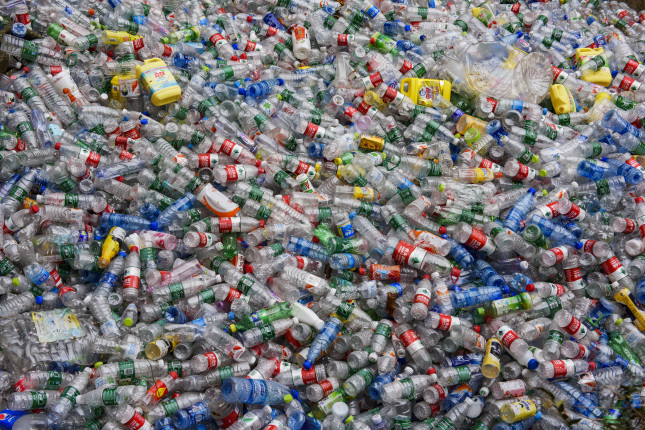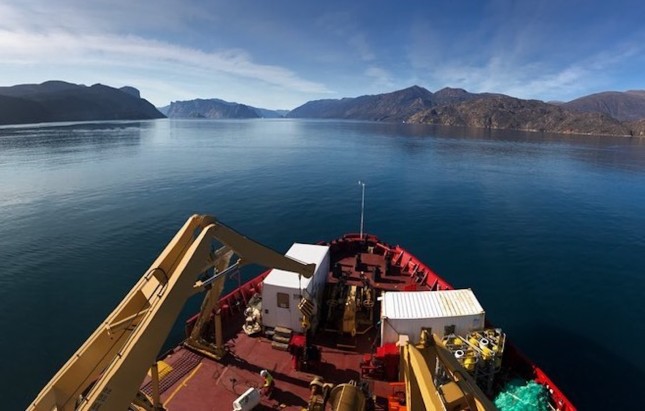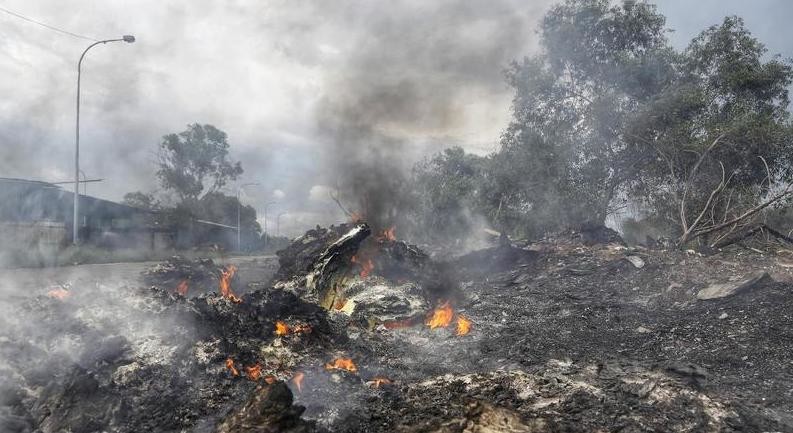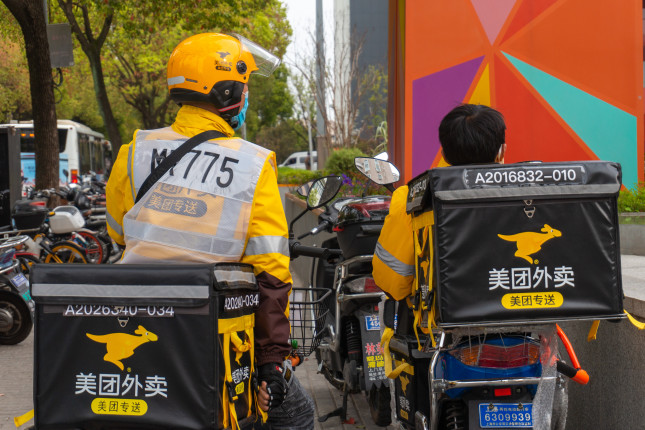-
UN Meeting Sets Sights on Global Plastics Treaty
›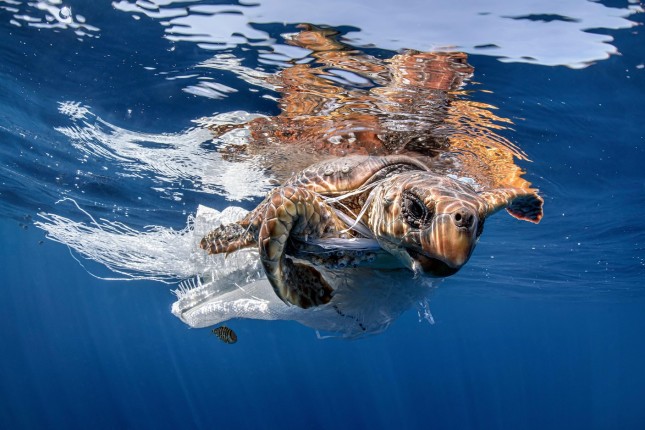
In Nairobi this month, the world’s governments will discuss the path towards the first global treaty to tackle plastic pollution. But with multiple proposals on the table, the scope and ambition of a potential treaty hangs in the balance.
-
Have Wetlands Will Travel: Migratory Birds Benefit from Habitat Conservation in China
›
As northeast China freezes with the onset of winter, cranes fly south to Poyang Lake, China’s largest freshwater wetland sanctuary, along with hundreds of thousands of migratory wildfowl. For birds that feed on tubers of submerged aquatic plants, such as the critically endangered Siberian Crane, the threatened and declining Swan Goose, and thousands of Tundra Swans, Poyang’s food-rich winter wetlands are key to their survival. However, dams along the Yangtze River and growing floods are disturbing the natural rise and fall of water levels that are needed for Poyang’s aquatic plants to thrive. Poorly regulated and expanding sand dredging in the Yangtze River and Poyang Lake is increasing turbulence in the water, limiting light reaching the aquatic plants that migratory birds rely on.
-
Reducing the Environmental and Social Costs of Chinese Investments in Pakistan
›Pakistan is just one of 142 countries that has signed on to China’s Belt and Road Initiative (BRI), but is arguably the flagship partner among the group. BRI is an infrastructure investment project and aims to bring between $1 to $8 trillion dollars in development initiatives to global railways, highways, power plants, hydropower dams, and ports under the BRI umbrella. However, since the two governments formalized the China-Pakistan Economic Corridor (CPEC), a framework of infrastructure connectivity, there have been strong concerns from the Pakistani public about the social and environmental costs of Chinese investment.
-
China’s “New Energy Cloud”
›Criss-crossing the expansive nation from the icy northeast to the dry deserts of the far west and into the mountain jungles of the south, China is constructing the world’s largest ultra-high voltage power grid, connecting distant coal, wind, solar, and hydro to energy-hungry east coast cities. Beijing recently ordered vast numbers of batteries to be connected to the grid—batteries that can store excess wind, solar, and other renewable power, and then dispatch it as needed. This “New Energy Cloud” provides the flexibility in the power grid that is required for finally dethroning old king coal. However, zapping coal power long distances doesn’t exactly solve the climate problem.
-
The Climate Footprint of Plastics and the Need for a Global Solution
›U.S. efforts to reclaim its climate change leadership, as demonstrated at COP26 in Glasgow, will be undermined if the country does not also step up and accelerate action on reducing plastic waste. Plastic is packing a serious carbon punch along its entire supply chain, from oil extraction and manufacturing to disposal. According to Beyond Plastic’s new report, The New Coal: Plastics and Climate Change, the U.S. plastic industry’s contribution to climate change will exceed that of coal by the year 2030.
-
Blue Jeans Contaminating Blue Oceans: The Expanding Microfiber Footprint of Our Clothes
›The Arctic is believed to be a pristine environment, far removed from littered city streets and toxic industrial emissions. I study human pollution and I found it hard to believe that my fellow researchers and I would find so much litter out here. It was even harder to believe that what we uncovered closely resembled the contents of my own closet, over 3,000 kilometers (2,000 miles) away in Toronto. -
Imagine a Future Without Single-Use Plastics
›If producing plastic waste were a race, Japan would be rushing for the gold medal. Japan and the United States both rank the highest per capita for plastic packaging waste in the world. Former Prime Minister Shinzo Abe’s administration set a goal to reduce Japan’s plastic waste production by 25 percent by 2030 and recent polls show the majority of the Japanese public wants strong actions to reduce plastic waste. Nevertheless, Japan is not doing enough to stem the tide of plastic entering the ocean. If Japan and the rest of the world fail to act more boldly, global oceanic plastic waste could triple by 2040. Current commitments of governments and corporations would only reduce global plastic leakage seven percent below the business-as-usual scenario. Japan’s current waste management system prioritizes recycling and incineration, encouraging a make-take-waste linear model of plastic consumption. Japan needs a circular economy built on a culture of reduction and reuse instead of single-use plastics.
-
Hitting the Brakes on Plastics in China’s Food Delivery Industry: Q&A with Zheng Xue and Sherry Lu of Plastic Free China
›China Environment Forum // Q&A // November 4, 2021 // By Solange Reppas, Mingwei Zhu, Tongxin Zhu & McKenna PotterIn every Chinese city, there is an army of motorcycles and mopeds weaving through the traffic jams, and sometimes even venturing on sidewalks, to deliver millions of food and e-commerce orders each day. Meituan, one of China’s most popular food delivery apps, delivers 30 million orders a day, serving up 100 million plastic containers. According to Greenpeace, e-commerce and express delivery in China generated 9.4 million tons of packaging waste in 2018 and will likely triple to 41.3 million tons by 2025.
Showing posts from category China Environment Forum.



